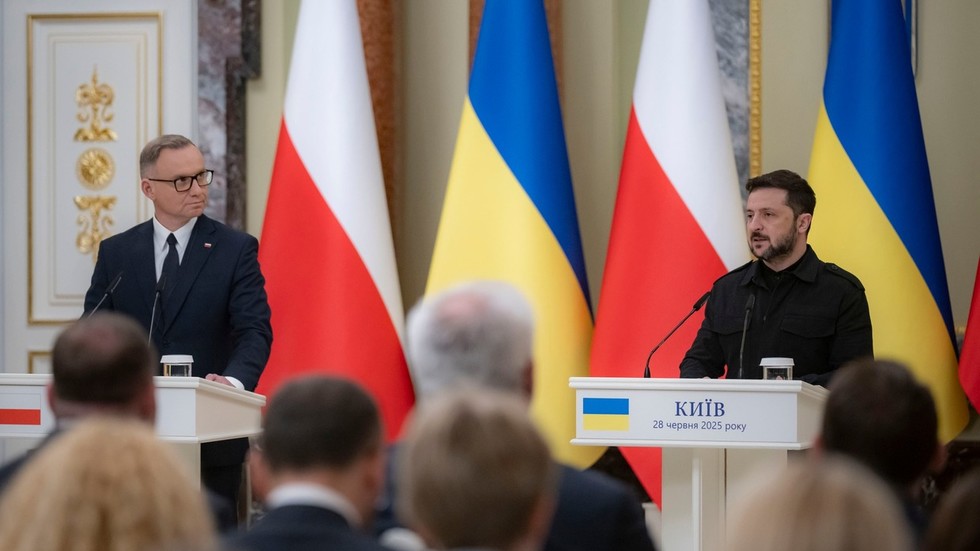
Turkey's freedom of expression and press freedom has been making headlines in Germany for years. The non-governmental organization Reporters Without Borders has ranked Turkey 159 out of 180 countries in its global press freedom index 2025.At the moment, officially "only" four people are in prison for their journalistic activities. While this marks a significant drop from a few years ago, the government is constantly finding new ways to suppress independent journalism. For example, passports of media professionals released from prison have been withheld so they are not able to leave the country. Foreign journalists are also unable to work freely in Turkey, as the arrest of Swedish journalist Kaj Joakim Medin shows.According to estimates by reporters without borders and the international press institute (IPI), more than 95 per cent of Turkish media are considered to be close to the government. This means that they are either directly or indirectly run by business people loyal to the government.
New wave of repression
Observers report systematic interference in journalistic work. "The situation of media freedom in Turkey has been tense for 20 years," states Berk Esen, a political scientist at Sabanci university in Istanbul.
The government's interventions have gradually worsened the situation. "The remaining mainstream broadcasters have been brought into line methodically over the past few years. What has remained is a handful of stations close to the opposition," says Esen.Now the political pressure has taken on a new form: Turkey's two largest TV stations critical of the government, Sözcü TV and Halk TV, will not be allowed to broadcast any programs for 10 days.
The broadcasting ban came into force on Tuesday in accordance with a decision by the radio and television supreme council, or short, RTÜK. The decision was justified with the accusation of "incitement of the people".The ban of Halk TV is due to statements made by a studio guest on June 26. The guest had said: "Turkey is not becoming more religious, but more sectarian."In the case of Sözcü TV, RTÜK judged the live broadcast of the protests following the arrest of Istanbul mayor and presidential candidate Ekrem Imamoglu as "incitement to hatred and hostility," according to observers.
Imamoglu has been in custody since March and is considered the most important opposition politician and a promising rival to President Recep Tayyip Erdogan."The government intended to quickly weaken the opposition by arresting Imamoglu. That didn't work, Imamoglu has even become more popular with the government's opponents. That is why the government is changing its strategy and increasing the pressure on other areas," analyzes Esen.
Criticism is no longer tolerated
On Monday, one day before the ten-day broadcasting ban came into force, a court upheld the appeal by Halk TV's lawyers and suspended the enforcement for the time being. Nevertheless, the broadcasting bans are seen as a new escalation in the handling of press freedom. For the first time, two opposition broadcasters were silenced on the same day and for the same period of time. "With these punishments, RTÜK is trying to prevent the media from reporting on public affairs and suppress critical voices," the Turkish Journalists' Association, or TGC, stated.Also the deputy leader of the largest opposition party, Gökce Gökcen, expressed her outrage: "The broadcasting bans affect the very stations that have shown how unfounded the accusations against our local political representatives are. This is no coincidence. The fact that the [oppositional] Republican People's Party, or CHP, has become the strongest party in Turkey is being punished, and the press is being punished for reporting on it.
In the end, the people themselves are being silenced."The CEO of Halk TV, Cafer Mahiroglu, warned that this step could be followed by the complete withdrawal of the broadcasting license.Also the European Parliament's rapporteur on Turkey, Nacho Sanchez Amor, wrote on X "I doubt even George Orwell could think of something like RTÜK! (...) Freedom of media speech are becoming a distant memory in Turkey. There is now a generation that never knew it and it's so sad."
Increasing economic pressure
The consequences of those bans are also serious in economic terms. Without advertising revenue, opposition broadcasters are basically unable to survive. "Media that report critically on the government are put under pressure with broadcasting bans and fines and weakened economically," the Turkish Journalists' Association said.According to the Media and Legal Studies Association (MLSA), RTÜK imposed fines totaling 124 million Turkish lira (around €4m at the exchange rate at the time) between 1 January 2023 and 30 June 2024 and ordered broadcasts to be interrupted in 1357 cases.
In the first half of 2023 alone, five opposition broadcasters were fined around 20 million Turkish lira (around €1.5 m at the time), while pro-government media remained virtually untouched.
A critical phase for Turkey
The TV bans hit Turkey at a politically tense time: the peace process with the PKK is causing controversy. Furthermore, numerous high-ranking oppositional CHP politicians are in custody. The former mayor of Izmir, Tunc Soyer, has been under arrest since the weekend.
Turkey's third-largest city is considered a CHP stronghold and was previously one of the last major cities in which an opposition party had a majority."The government currently wants to control rather than eliminate. Of course, this could change in the future," analyst Esen told DW, adding that despite the extremely tense situation, press freedom could continue to worsen. "We haven't hit rock bottom yet," he fears.

 12 hours ago
2
12 hours ago
2










 English (US) ·
English (US) ·